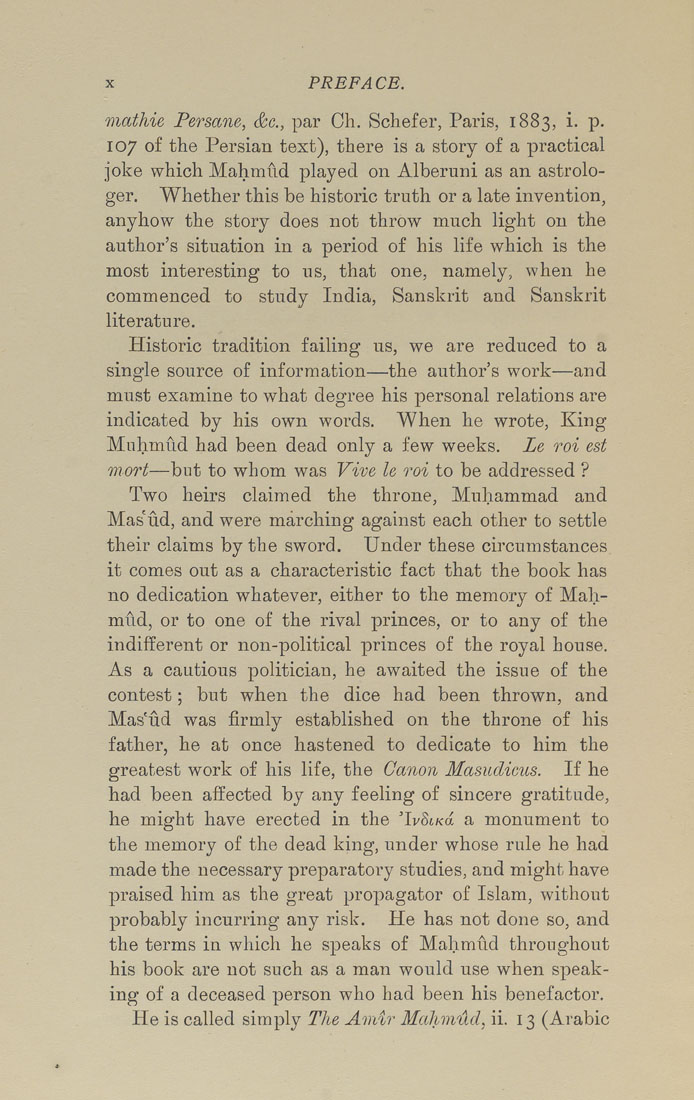Bīrūnī, Muḥammad ibn Aḥmad, Alberuni's India (v. 1)
(London : Kegan Paul, Trench, Trübner & Co., 1910.)
|
||
|
|
|
|
| Page x |

X PREFACE. mathie Fersane, &c., par Ch. Schefer, Paris, 1883, i. p. 107 of the Persian text), there is a story of a practical joke which Mahmud played on Alberuni as an astrolo¬ ger. Whether this be historic truth or a late invention, anyhow the story does not throw much light on the author's situation in a period of his life which is the most interesting to us, that one, namely, when he commenced to study India, Sanskrit and Sanskrit literature. Historic tradition failing us, we are reduced to a single source of information—the author's work—and must examine to what degree his personal relations are indicated by his own words. When he wrote. King Muhmud had been dead only a few weeks. Ze roi est mort—but to whom was Vive le roi to be addressed ? Two heirs claimed the throne, Muhammad and Mas'lid, and were marching against each other to settle their claims by the sword. Under these circumstances it comes out as a characteristic fact that the book has no dedication whatever, either to the memory of Mah- mild, or to one of the rival princes, or to any of the indifferent or non-political princes of the royal house. As a cautious politician, he awaited the issue of the contest; but when the dice had been thrown, and Mas'ud was firmly established on the throne of his father, he at once hastened to dedicate to him the greatest work of his life, the Canon Masudicus. If he had been affected by any feeling of sincere gratitude, he might have erected in the 'IvSt^a a monument to the memory of the dead king, under whose rule he had made the necessary preparatory studies, and might have praised him as the great propagator of Islam, without probably incurring any risk. He has not done so, and the terms in which he speaks of Mahmud throughout his book are not such as a man would use when speak¬ ing of a deceased person who had been his benefactor. He is called simply The Amir Mahvi'dd, ii. 13 (Arabic |
| Page x |







